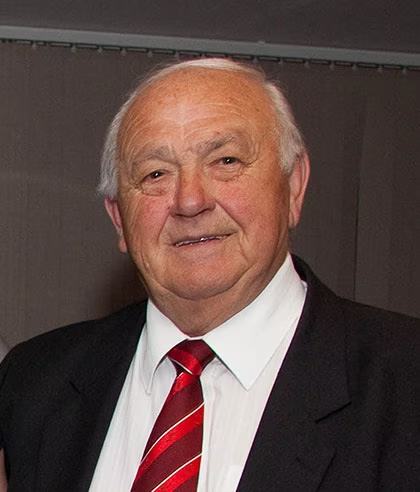Sixty years ago, Wales were on a mission in Edinburgh, trying to gain a first win at Murrayfield in a decade.
Clive Rowlands’ side had been beaten 13-6 by England on a rock hard, skating rink that doubled as the Cardiff Arms Park pitch before heading to Scotland. Rowlands had been picked as captain for his debut against England and was determined nothing would go wrong in Round 2.
The Scots had beaten France in Paris in their opening match and came into the game as firm favourites. It was due to be their season!
But Rowlands was an astutue tactician and, in Newport lock Brian Price, he had the line-out king of the northern hemisphere.
“The laws were slightly different in those days. You could kick to touch from anywhere in the field so Clive kept kicking it in and the opposition kept throwing it in back to me,” recalled Price.
“All I had to do was give it back to Clive who just kicked it back into touch. It was a remarkable game. We hadn’t gone onto the field with any sort of game plan. I think I caught all 111 as the ball just seemed to keep coming to me wherever I was.”
The winter of 1963 was among the worst on record in the 20th century and Murrayfield’s undersoil heating ensured the game could go ahead. For many of the 60,000+ fans crammed into the ground it turned into a day to forget with Wales sticking rigidly to their forward plan and kicking to touch whenever they could.
The statisticians had a field day counting the 111 line-outs – 55 in the first half and 56 in the second. Amazingly, it wasn’t a world record number as there had been 114 in the first match between New Zealand and South Africa at Dunedin in 1921. It was estimated that 38 of the 80 minutes were spent preparing for or taking line-outs.
In the end a drop-goal from Rowlands and a penalty from Grahame Hodgson won the game for Wales. It was their only win of the campaign and they finished bottom of the table.
The Times reported that “Not once in the match did the ball reach the centres direct from the stand-off”. David Watkins, who was playing at outside half, only touched the ball five ties during the match, while his centre Brian Davies didn’t touch the ball. He was dropped after playing in a winning side!
Watkins accounted for all his actions during the game claiming he had touched the ball “Once to collect the Scottish kick-off, twice to pick up their grub-kicks ahead, and twice only to catch passes from my scrum half”.
Hodgson opened the scoring after quarter of an hour with a penalty after Scotland had strayed off side. Ken Scotland had two chances to level but missed with both, the second striking an upright, while the game became no more than a succession of kicks to touch. Rowlands drop goal from a tight angle 15 minutes into the second half was the only other score.
Writing in the Daily Express, Pat Marshall concluded: “This was power-Rugby, brutally bludgeoned up and down the touchlines by two brutish packs with kicking scrum halves yapping at their heels.
“It has no part in the pattern of British rugby where quickness of wit and fleetness of foot still counts for more than brawn supported by an educated boot. Rowlands won a tactical victory, but it was no victory for rugby.”
In the Daily Herald, Dennis Busher wrote damningly: “International rugby is in its death throes as a spectator sport. Wales won by carrying ‘modern’ power rugby to its logical conclusion.”
Scotland won 25 scrums to 13, including three to one against the head, and won 30 line-outs to Wales’s 37, with 44 degenerating into mauls. To put those figures into some sort of context, there were only 24 line-outs in the England v Scotland Six Nations clash last weekend, 25 in the Wales v Ireland match and an average of 27 in each game in the 2022 Six Nations.
Rowlands admitted after the game he “was never at any time tempted to open the game up and let my backs make the running. That’s what Scotland were praying we’d do”.
Scotland prop David Rollo remembered the game as a day to forget: “It was a wet day and the match just went on, and on, and on. The Welsh scrum half just kept kicking it out, and on the one occasion when the ball got out as far as their stand off, he kicked it straight out too.
“We were playing in front of the West Stand and never left that touchline. If I’d have been in the East Stand, I’d have wanted my money back.”

